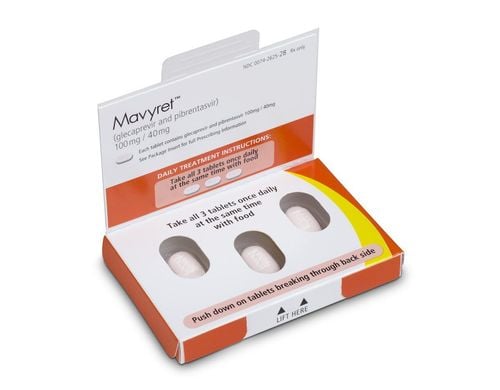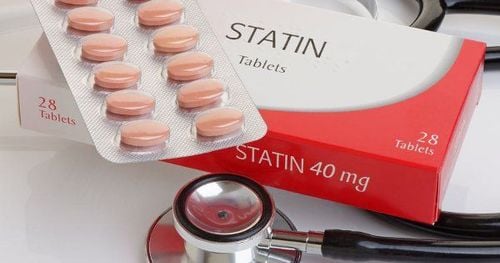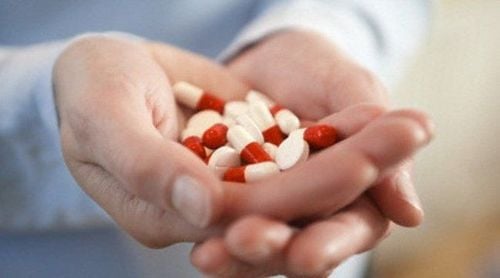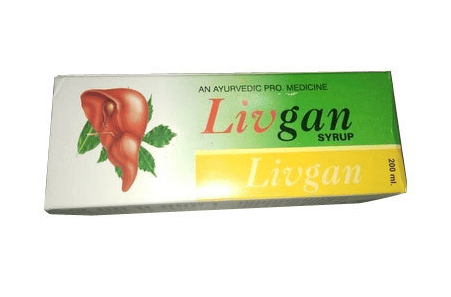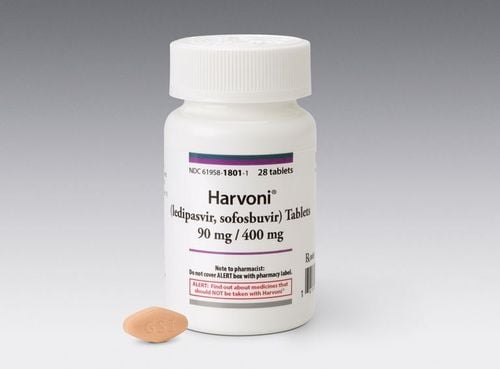This is an automatically translated article.
The article was professionally consulted by Specialist Doctor I Vo Thi Thuy Trang - Gastroenterologist, Department of Medical Examination & Internal Medicine - Vinmec Danang International Hospital. The doctor has many years of experience in the field of gastrointestinal endoscopy.The liver is a relatively large organ located in the abdomen, below the ribs on the right side. The liver function is to excrete enzymes that digest food, metabolize and remove toxic substances from the body. Therefore, it is necessary to pay attention when using drugs to treat liver disease as well as taking drugs when the body is having liver disease, so that both the disease is cured but it does not damage your liver.
1. The role of the liver in the body
One of the liver's main functions is to metabolize most substances that are allowed into the body through the digestive tract, including foods, drugs, herbs, and supplements. This process usually takes place effectively and does not cause any harm to the body. Before new drugs are released into the public, they have been extensively tested by a group of researchers to be approved for use.During this stage, tests to evaluate liver function as well as liver damage are carefully performed, to ensure that the liver is not damaged. For this reason, the vast majority of drugs currently available have been found to be safe for human use.
However, for people with liver diseases such as cirrhosis, hepatitis, the use of drugs in particular and the tolerance of substances into the body in general, it is necessary to consider the risk of harm to the liver. In some cases, people who already have liver disease may be at increased risk of liver damage when using certain medications.
Also, drugs known to have the potential to affect the liver carry special warnings when used in people with liver disease. Some drugs used for the treatment of liver disease, such as those for cirrhosis, are also used only when there is evidence of benefit and clear indications, because uncontrolled use translates into risks. harmful to the liver.

2. Symptoms of liver damage
In most cases of significant liver injury, laboratory abnormalities can be detected during normal physical examinations, just before symptoms appear. These are tests to detect liver function impairment such as coagulation disorders, hypoproteinemia... and liver cell damage such as elevated liver enzymes.When the liver's role is significantly delayed, as in decompensated cirrhosis, patients go to the doctor when the body shows symptoms of the disease but it is too late. Typical symptoms of liver disease may include nausea, loss of appetite, discomfort in the upper right corner of the abdomen, generalized itching, dark urine, yellowing of the eyes, and jaundice. Even many people have no such symptoms until they fall into complications of acute liver damage such as hepatic coma.
If the patient is taking drugs that have a risk of affecting the liver, you should have regular health checkups even if the body is completely symptom free to detect the side effects of the drug. and make appropriate adjustments.
3. Diagnosis of cases of liver damage
Liver damage from any cause is usually detected early with a blood test.Usually, there is no need to monitor liver tests when starting a certain medicine. However, if a doctor needs to prescribe a medication that carries a risk of liver damage, the most common test used to monitor liver disease is liver enzyme testing, including the AST (aspartate aminotransferase) test. ), ALT (alanine aminotransferase), AP (alkaline phosphatase) and bilirubin.
If the results of these tests are not significantly above the upper limit, liver damage may not be apparent at this time. In general, doctors diagnose serious drug-induced liver damage when AST and ALT levels rise 3 to 5 times above the normal range. In contrast, the patient continues to receive treatment and the diagnosis of liver damage will be continuously monitored.
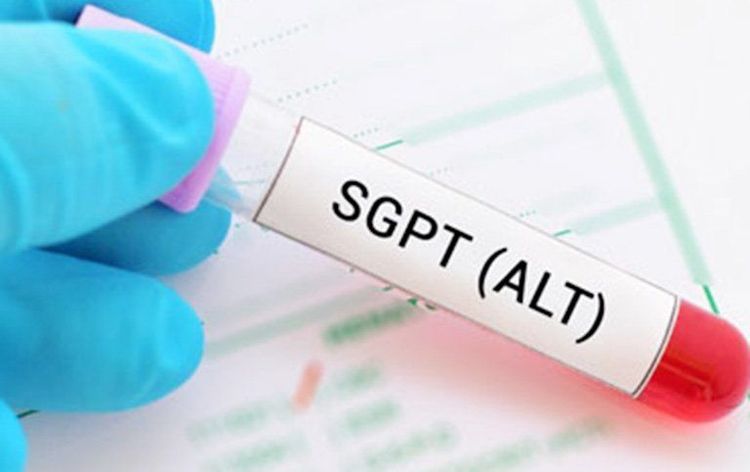
4. Common drugs that can cause liver damage
The most widely used and well known drug that can harm the liver is acetaminophen (paracetamol). This medicine is available at every home's medicine cabinet without a prescription. This is an indispensable ingredient in cold and flu prescriptions sold in drugstores.In fact, acetaminophen, when used as directed, is extremely safe even for people with liver disease such as end-stage cirrhosis. However, taking too much acetaminophen at once or taking high doses of acetaminophen continuously for several days can cause liver damage. Accordingly, healthy individuals should take no more than 1,000 mg of acetaminophen per dose, and no more than 3,000 mg in a day (that is, up to 1,000 mg every 8 hours).
Also, even healthy people should avoid taking 3,000mg of acetaminophen per day for more than 3 to 5 days. Patients with liver disease such as hepatitis or compensated cirrhosis should limit their daily acetaminophen intake to 2,000mg per day, or even less if they have severe liver disease such as decompensated cirrhosis. Even if you don't have liver disease, always use the smallest amount of acetaminophen needed to control pain.
It is important that you read the instructions for all prescription and over-the-counter medicines you take carefully. Since acetaminophen can be found in a number of common medications, chances are you've been taking a dose of acetaminophen that's above the safe limit per dose or per day for a long time.
Also, people who drink alcoholic beverages regularly have a higher risk of severe liver damage from acetaminophen. The reason is that alcohol will change the way the liver metabolizes substances. Therefore, when taking acetaminophen, especially in high doses, when alcohol is used, it will lead to the accumulation of the drug in the liver and damage to liver cells. Therefore, people who drink alcohol regularly should not prescribe acetaminophen or only use it in the smallest possible dose.
Another common class of drugs that can affect liver tests are cholesterol-lowering drugs, commonly known as “statins”. These drugs have been used universally in millions of people with cardiovascular disease , diabetes or elevated blood lipid levels .
Although this class of drugs has little evidence of liver damage, even when used in people with mild liver disease, some patients develop a mild transient elevation of liver enzymes when starting the drug. In the majority of cases, liver enzyme levels, although elevated, were usually below 3 times baseline and levels returned to normal despite continued statin use. Therefore, doctors need to weigh the benefits and risks when using drugs, ensuring safety for patients.
In addition to the classes of drugs that are consumed for a therapeutic role, supplements and herbs, although naturally derived, can still be toxic to the liver. The metabolism and distribution of these substances has not been studied with the same care as that of prescription drugs. At the same time, these products are sometimes still used even though there is no evidence of effectiveness. Therefore, in this context, it is necessary to consider the choice of drugs and nutritional supplements, especially when there is liver disease such as cirrhosis.
5. How to use the drug in people with liver disease
With drugs that have been shown to cause no harm to the liver, people, even with mild liver disease, can still take common prescription and over-the-counter drugs at the recommended doses.In contrast, with mild liver disease such as hepatitis C or fatty liver, compensated cirrhosis, starting a certain drug can still be toxic to the liver. For that reason, whenever you are prescribed medication, you need to warn your doctor about your history of liver disease, cirrhosis, to avoid drugs that can affect the liver.
In people with more severe types of liver disease such as cirrhosis, more care must be taken about the types and doses of drugs they take. Although the liver's ability to properly metabolize drugs is preserved even in the presence of severe liver disease, some drugs should not be used or should be used at lower doses when administered to patients with advanced cirrhosis. develop.
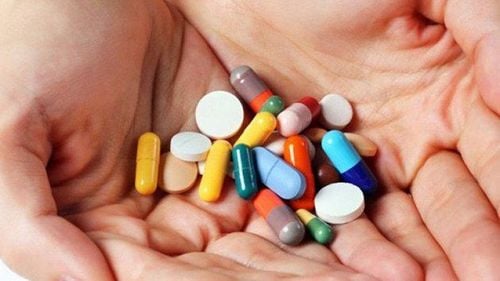
6. Recommendations to minimize the risk of drug-induced liver damage
Always make a list of all prescription and nonprescription medications you are taking, including herbs, vitamins, and supplements. Patients always carry this list with them every time they see a doctor. The less medication you take, the better. This includes herbs, supplements, prescription and over-the-counter medications. If you have two or more prescriptions, make sure all drug names are up-to-date on the current list of medications. When using over-the-counter medications, be sure to read labels carefully and never exceed the recommended dosage. Avoid taking the maximum recommended dose for a long time without consulting your doctor. If you are taking more than one medicine at the same time, make sure the ingredients are not the same. Otherwise, you may run the risk of accidentally overdosing on the medicine. If you consistently drink significant amounts of alcohol each day, avoid or limit your use of acetaminophen. If used, never use the maximum dose. If you have liver disease such as hepatitis or cirrhosis, make sure your doctor knows about this diagnosis and the severity of your liver disease. If you have advanced liver disease such as severe decompensated cirrhosis, you should consult your hepatologist before starting any new medication, including dietary supplements. . The above are the notes when using drugs to treat liver disease. A healthy liver is the foundation for a healthy body. In order to stay healthy for a long time, as well as the metabolism of all substances in the body to be stable, the use of the drug should be consulted with a doctor, on indications, uses and dosages, especially when you have previous liver damage such as hepatitis or cirrhosis .In order to detect the side effects of drugs to the liver early, you should have regular health checkups. Currently, Vinmec International General Hospital has a variety of Periodic Health Checkup Packages, helping patients to detect health problems early not only in the liver but also in other parts of the body:
Package standard general health checkup
Comprehensive health checkup package
Special general health checkup package
VIP general health checkup package
Diamond general health checkup package
Please dial HOTLINE for more information or register for an appointment HERE. Download MyVinmec app to make appointments faster and to manage your bookings easily.
Reference sources: drugabuse.com, gi.org, webmd.com, goodrx.com




